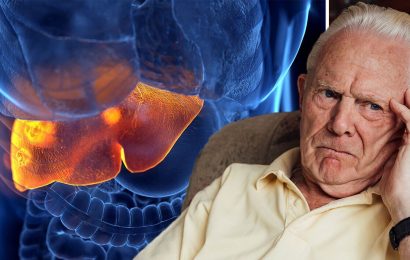
- Researchers investigated how mice with Crohn’s disease-like inflammation of the ileum are affected by stress.
- They found that psychological stress did not increase intestinal inflammation and induced the formation of tertiary lymphoid organs (TLOs) by increasing the production of interleukin 23 (IL-23) and IL-22, which are cytokines involved in the inflammatory response.
- The researchers also found that the stressed mice with ileitis were protected against a secondary, chemically induced colon injury, suggesting that TLOs may improve the mucosal barrier in the intestines.
- The findings of this study demonstrate that stress may have a beneficial effect in some conditions.
According to the CDC, about 7 million people worldwide have inflammatory bowel disease (IBD). IBD is an umbrella term used to describe conditions characterized by chronic inflammation of the digestive tract. Crohn’s disease and ulcerative colitis are the two types of IBD.
Research has consistently shown that psychological stress poses a significant risk for IBD patients. Even if they are already in remission, IBD patients who report higher levels of stress are more likely to require medical intervention.
Aside from stress, a growing number of studies show that tertiary lymphoid organs (TLOs) also play an important role in IBD. TLOs are collections of immune cells that form in peripheral, non-lymphoid tissues in response to local chronic inflammation. Researchers are still debating whether TLOs have protective or pathogenic effects on IBD.
Since TLO formation in the context of psychological stress had not yet been examined, researchers at the Case Western Reserve University School of Medicine, in Cleveland, OH, decided to conduct a study to address this knowledge gap.
“What we discovered is that chronic daily stress for six weeks was beneficial against a second injury. The mouse models that were stressed were actually protected. We showed they had stimulation of the immune system, which protects against intestinal inflammation.”
— Dr. Fabio Cominelli, senior study author and professor of medicine and pathology
The results of this study have been published in Proceedings of the National Academy of Sciences.
In their study, the researchers used mice from the SAMP1/YitFc (SAMP for short) strain. At 10 weeks, SAMP mice develop spontaneous ileitis (inflammation of the ileum) that resembles human Crohn’s disease.
To induce psychological stress, the researchers subjected 12-week-old SAMP mice to 56 consecutive days of restraint stress.
Since past research has shown that stress is associated with more severe inflammation, the researchers expected to see more severe ileitis and/or colitis (inflammation of the colon) in the stressed SAMP mice. However, contrary to their hypothesis, they observed no significant increase in intestinal inflammation in the stressed SAMP mice.
Using three-dimensional (3D) stereomicroscopy, the researchers found a markedly higher number of TLOs in the stressed SAMP mice compared to the unstressed control mice. While earlier studies showed that stress is linked to components of the TLO formation pathway, this study demonstrates that stress is directly associated with TLO formation increase, the researchers said.
Since previous work linked TLO formation to worse disease states, the researchers hypothesized that the stressed SAMP mice with higher numbers of TLOs would be more vulnerable to a secondary colon injury.
To test their hypothesis, the researchers administered a 7-day regimen of 3% dextran sodium sulfate (DSS) to the mice in their drinking water. DSS induces colitis in mice models.
Following DSS administration, the researchers assessed the severity of colitis using endoscopy and histological scores. They observed that the stressed SAMP mice displayed less severe colitis compared to the unstressed control mice.
According to the researchers, a possible explanation for this resistance to secondary intestinal injury in stressed mice is that the higher number of TLOs “may function to improve the mucosal barrier”.
In view of previous studies supporting the microbiome-gut-brain axis, the researchers hypothesized that the microbiome may be responsible for the increased formation of TLOs in stressed mice with ileitis.
However, when they analyzed the microbiomes of stressed and unstressed mice with ileitis, they did not find persistently significant differences in microbiome composition.
Since changes in the microbiome due to stress could not explain the increased formation of TLOs, the researchers next investigated how stress could affect the TLO formation pathway.
They found that stress increases the production of the cytokines interleukin 23 (IL-23) and IL-22. These two cytokines are a part of the TLO formation pathway.
Although the researchers concluded that increased formation of TLOs is mediated by increased IL-23 and IL-22 production, they cautioned that the method they used to analyze microbiome composition (16S rRNA gene sequencing) has fundamental limitations and “therefore, we could not discount the hypothesis that stress promotes TLO formation through microbiome alterations.”
Commenting on the findings, Dr. Eoin McNamee, assistant professor and group leader at Maynooth University’s Institute of Immunology said:
“I think the finding is interesting […], but also to be aware this mouse model has a very unusual disease course compared to others and human ileal (end of the small intestine) Crohn’s disease. So, in a way, [it is] somewhat of a nuanced finding that may have limited implications for human disease.”
This study is novel because it “demonstrates a condition where stress has a beneficial effect,” said Dr. Cominelli. Further studies are necessary to determine “whether this may translate to other diseases and injuries,” he added.
Of course, this does not mean that stress is always beneficial.
“So, do I want to be stressed? It all depends on the definition of stress. ‘Stimulated’ is a better term. The message is that a little bit of stress is good in your life, but you want to be stressed in the right way,” Dr. Cominelli said.
Source: Read Full Article


